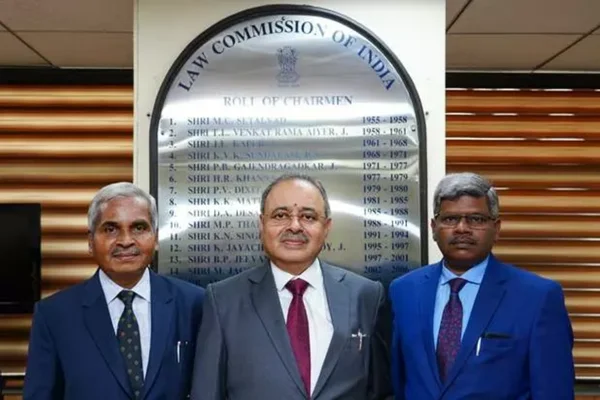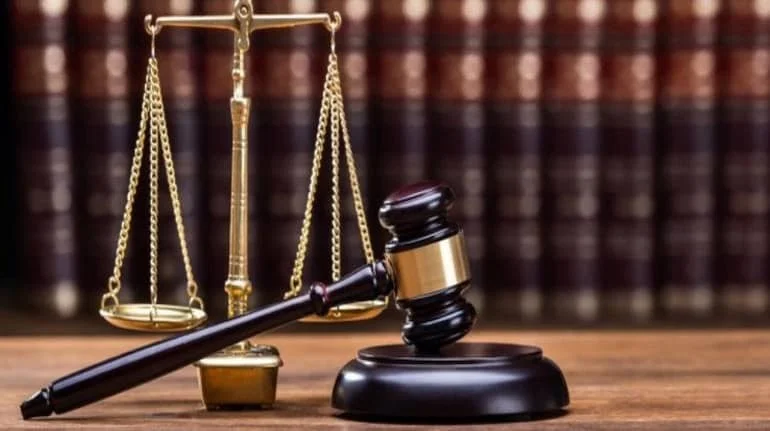Law Commission of India recently released Report No. 285 titled “The Law of Criminal Defamation” & Report No. 284 titled “Revisiting The Law On Prevention of Damage to Public Property” to the Government of India.
About “Revisiting The Law On Prevention of Damage to Public Property” report:
- The Commission conducted an extensive study, analyzing constitutional and statutory provisions, judicial pronouncements, and incidents of large-scale destruction of public property.
- Widespread destruction of public property has continued, causing significant losses to the public exchequer and inconvenience to the general public.
- The 22nd Law Commission undertook this study suo motu to address the gravity of the issue and the financial burden on the state exchequer.
Key recommendations:
Reversing Burden of Proof
- Proposal: The burden of proving innocence should be on the accused.
- Reasoning: This change is intended to deter offenders, making them responsible for proving their innocence.
Fines Equal to Market Value
- Proposal: Introduce fines equivalent to the market value of the damaged public property.
- Deterrence: Compelling offenders to deposit the estimated value of public property for bail is seen as a strong deterrent.
Amendments to Existing Act
- Recommendation: Amend the Prevention of Damage to Public Property Act, 1984.
- Purpose: Strengthen the legal framework to address and prevent damage to public property effectively.
New Legislation for Willful Obstruction
- Suggestion: Enact new laws to address “willful obstruction of public property.”
- Options: Propose separate legislation or amendments to the Indian Penal Code (IPC) or the Bharatiya Nyaya Sanhita (BNS), 2023.
Comprehensive Law for Prolonged Obstruction
- Alternative: Introduce a comprehensive law addressing “wilful obstruction and blockade of public spaces and roads for prolonged periods.”
- Rationale: Address hardships caused to the general public due to prolonged obstruction.
Constitutional & legal provisions for protection of public property:
- Article 19(1)(f): Guarantees the fundamental right to acquire, hold, and dispose of property.
- However, this right is subject to reasonable restrictions by the Union and State legislatures in the public interest.
- Article 31: Guarantees the right to private ownership and the right to enjoy and dispose of property, free of restrictions.
- Article 51 A(i): To safeguard public property and to abjure violence.
- Prevention of Damage to Public Property Act, 1984: Causing mischief that results in damage to public property, other than the kind specified in subsection (2), is an offense punishable by imprisonment for a term that may extend up to five years along with a fine.
About “The Law of Criminal Defamation” report:
- The Law Commission of India has recommended retaining the offence of criminal defamation in its 285th Report.
- The 285th Report emphasizes the need to strike a balance between fostering open discourse and protecting individuals from potentially damaging falsehoods that could harm their reputation irreparably.
Background of the report:
- The law ministry had referred the matter to the Law Commission in 2017, seeking recommendations on the criminal defamation law.
- The Commission’s report draws heavily from the Supreme Court’s 2016 decision in Subramaniam Swamy v. Union of India, which upheld the constitutionality of criminal defamation.
- The court dismissed the challenge to Section 499 of the Indian Penal Code, affirming its constitutionality under Article 19(2) as a reasonable restriction on freedom of speech and expression.
- The court, in its decision, acknowledged the importance of protecting an individual’s right to reputation while considering the right to freedom of speech and expression.
Key recommendations:
Recommendation for Retaining Criminal Defamation:
- The Law Commission recommends the retention of criminal defamation within the country’s criminal laws.
- The report underscores the significance of protecting the right to reputation, which emanates from Article 21 of the Constitution, as a facet of the right to life and personal liberty.
Recognition of Harm to Reputation
- Significance: The law acknowledges that harm to reputation is not just an attack on an individual but an imputation on society.
- Reputation as an Asset: Reputation is described as an asset built over a lifetime and destroyed in seconds.
- Punishment Rationale: Perpetrators may be punished to serve the community as an act of remorse, as introduced in the Bharatiya Nyaya Sanhita.
Balancing Open Discourse:
- Emphasizing the importance of open discourse, the Commission acknowledges the need to strike a balance that respects the right to freedom of speech while safeguarding reputational interests.
Reforms to Address Misuse:
- To address concerns about the potential misuse of criminal defamation laws, the Commission recommends introducing community service as an alternative punishment.
- The proposed introduction of community service serves as a safeguard for victims and mitigates the risk of misuse by providing an alternative form of punishment.
Constitutional and legal provision:
Bharatiya Nyaya Sanhita
- The Bharatiya Nyaya Sanhita has introduced community service as an alternate punishment for criminal defamation.
- The law is seen as adopting a balanced approach by protecting both reputation and speech through the introduction of community service.
Section 499 of the Indian Penal Code (IPC)
- Section 499 of the Indian Penal Code (IPC) defines defamation.
- It states that anyone who makes or publishes an imputation about another person with the intention to harm their reputation is guilty of defamation.
Section 500 of the IPC
- Section 500 of the IPC prescribes the punishment for defamation.
Article 21 of the Constitution:
- The recommendation emphasizes that the right to reputation flows from Article 21 of the Constitution, being a facet of the right to life and personal liberty.
Article 19(2)
- Reasonable restriction on freedom of speech and expression.
About law commission of India:
- The Law Commission of India is an executive body established by an order of the Government of India.
- The commission’s function is to research and advise the government on legal reform, and is composed of legal experts, and headed by a retired judge.
- The commission is established for a fixed tenure and works as an advisory body to the Ministry of Law and Justice.
- The first Law Commission was established during colonial rule in India by the East India Company under the Charter Act of 1833 and was presided over by Lord Macaulay.
Ref: Source
| UPSC IAS Preparation Resources | |
| Current Affairs Analysis | Topperspedia |
| GS Shots | Simply Explained |
| Daily Flash Cards | Daily Quiz |



